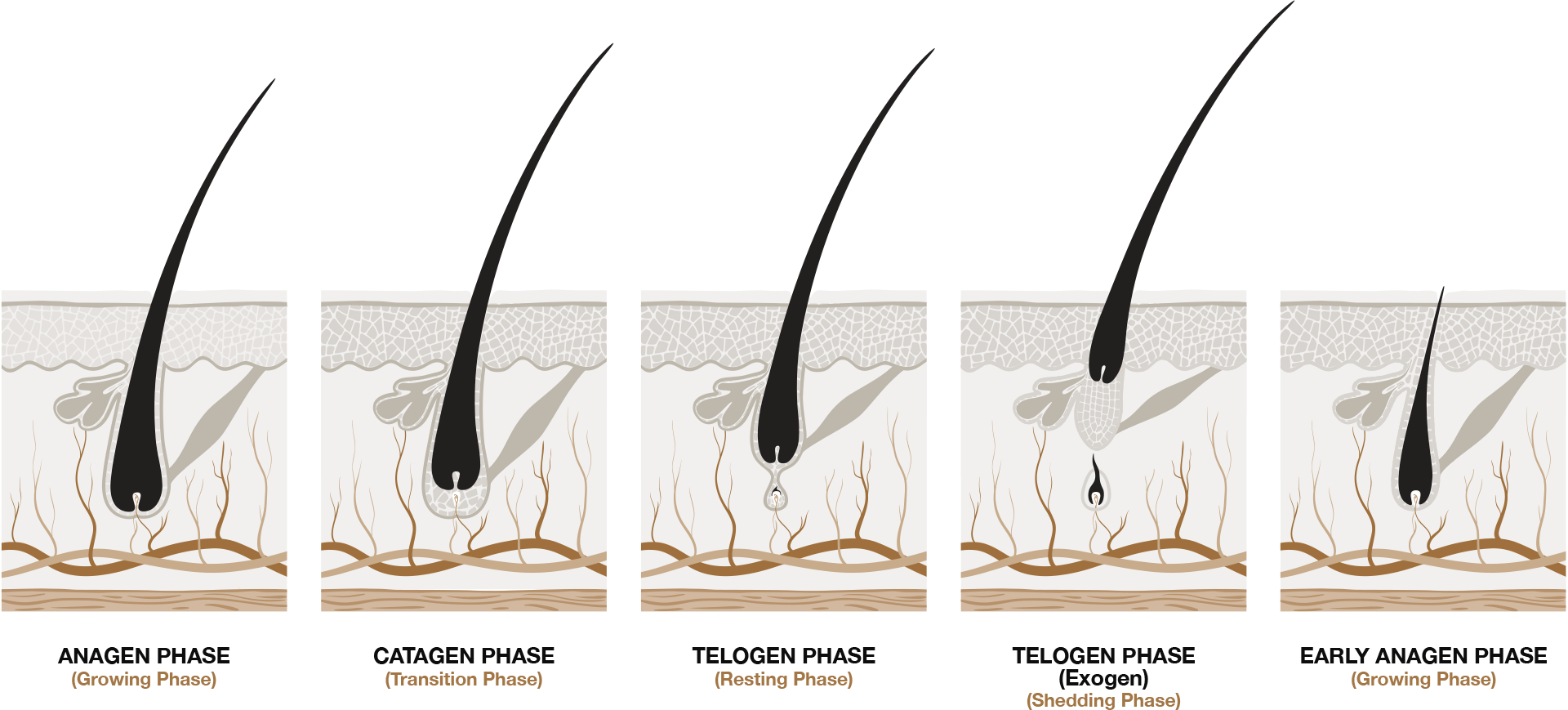The human body is built to experience stress and react in different ways. Stress isn't necessarily a bad thing, if harnessed and used in the right way it can be a driver behind success. Good stress are things such as getting a job promotion or being given greater responsibility which keeps you alert and ready. It's when stress becomes overwhelming that it becomes negative and may result in more serious issues.
Stress does not just affect your mental state, physical symptoms can include headaches, upset stomach, chest pain, increased blood pressure and problems sleeping. Research shows that stress could bring on or worsen certain symptoms or diseases.
It's when stress reaches this more serious stage that you might need to start worrying about your hair. Hair loss won't necessarily be caused by mild stress such as worrying if your date thought were weird after being dropped off by your mum but serious stress such as losing your job or the loss of a loved one may possibly be too much.
Now to understand why stress causes hair loss we have to look at the hair growth cycle. There are four stages of hair growth, the anagen phase (growing), the catagen phase (transition), telogen phase (resting) and the exogen phase (shedding). Majority of time is spent in the anagen phase (growing) and the entire cycle spans for roughly 5-7 years.
Stress affects the hair growth cycle by causing your body to move your hairs along the cycle a lot faster than expected. Rather than taking 5-7 years to grow, your body can suddenly move your follicles from the anagen phase to the telogen phase, even if they aren't ready. Like being late for the bus and leaving the house with one shoe on... you're in for a bad time.

The different types of hair loss relating to stress include:
Telogen effluvium - significant stress pushes large numbers of hair follicles that are in the anagen phase into a resting phase. In a a matter of months the affected hairs may fall out suddenly from washing or brushing your hair.
Trichotillomania - this is self inflicted and is a form of hair loss resulting from an irresistible urge to pluck hair from your eyebrows, scalp or other parts of your body. This is more of a bad habit rather than a genetic cause of hair loss so quit it. It is generally seen as a way of dealing with uncomfortable feelings such as stress or nerves.
Alopecia Areata - an extremely common autoimmune disorder where a life event including severe stress causes their immune system to attack the hair follicles which results in hair loss. The hair loss is generally small patches on the scalp and it's believed that one in 50 men and women will suffer from the condition in their lifetime.
Now if you're extremely stressed and have lost a couple of patches of hair it's not all bad news. In the majority of cases the hair will grow back so don't feel like you're forever destined to look like a troll doll that's been under a lawnmower.
I bet you're wondering how to regain hair loss from stress and I'll tell you now there is no magic overnight solution but the first and most vital step in growing that hair back is to get your stress in check. Any doctor, psychiatrist or even your own mum will tell you to stress less. I know it's not always easy and some people are more susceptible than others to the dangers of stress but it is ALWAYS manageable. Discover your triggers, avoid them and if you can't avoid them find something to relieve your stress.
We'd recommend exercising, catching a game of footy with the boys, breathing or meditation exercises or if gaming out chills you out then by all means go for it. We know all of these work for us!
While the first step is to cut down on the stressing you can also look towards topical solutions as you would with any other hair loss. joebloe isn't just for the bloke suffering from hereditary hair loss such as androgenetic alopecia, it's for anyone losing their hair and not quite ready to let go. So quit your stressing (or at least cut down), start taking care of yourself and find a treatment that's right for you.






